Where and when to get the flu shot. Inactivated vaccines are divided into. Which vaccine is better to choose
The flu is viral disease, which annually (more often in winter) causes a significant increase in the incidence up to epidemics. Given the respiratory route of infection, it is almost impossible to protect yourself from infection: contact with a patient can occur in any crowded place - at work, in transport, in a store.
Not every organism can easily cope with an influenza infection, which can cause complications. And even in an uncomplicated form, the flu causes severe intoxication, and after the illness, a prolonged asthenic syndrome remains.
Therefore, everyone would like to avoid getting the flu. And there is such an opportunity - this flu vaccination.
There is hardly another such burning question in relation to medicine, so vigorously discussed by specialists and amateurs, including the media, as vaccination of children and adults. There are a lot of both supporters and opponents of such disease prevention. Influenza vaccination is no exception.
There are many questions about the flu vaccine and the general public, ranging from "Do I need a flu shot?" and ending with "where to get the flu shot?" The article contains answers to the most frequently asked questions.
Why an annual flu shot is needed
The influenza virus differs from many other viruses in its ability to mutate when exposed to various factors... And since there are 3 types of influenza viruses (A, B, C), each of which has different strains, it is clear that every winter people can meet a new variant of the virus, against which there are no antibodies in the body.
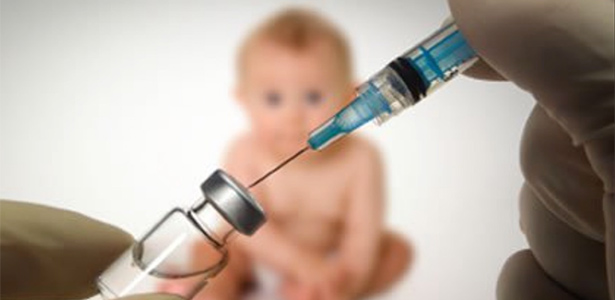
In addition, immunity against influenza is not only type-specific, but also short-lived. Therefore, throughout life, a person can get sick several times with the flu caused by the same type of virus. Unfortunately, the flu vaccine will also protect against this type and strain of the virus for no longer than a year.
Should you get the flu shot?
Many are interested in this issue in connection with so many possible virus strains. The fact is that there are several WHO centers around the world that track the migration of the influenza virus. The specialists of these centers make a forecast for different regions the likely strain of influenza virus for each season.
These predictions are sent to pharmaceutical vaccine companies, so a new vaccine is prepared for each season. Therefore, the question “should I get a flu shot?” In order not to be mistaken with the virus, should not arise. Predictions do not coincide with reality very rarely.
What vaccines are used?
The flu vaccine can be live and inactivated or killed.
Live vaccines prepared from viruses grown in chicken embryos. These weakened viruses are not able to cause influenza in the vaccinated person. Such a vaccine has the greatest reactogenicity (the ability to cause side effects), but, at the same time, it causes a more pronounced immune response.
Inactivated vaccines prepared from killed influenza viruses using physical or chemical effects (ultraviolet radiation, formaldehyde).
Inactivated vaccines are divided into:
- whole virion;
- split or split vaccines (not containing chicken protein and virus lipids);
- subunit (consist only of 2 virus proteins necessary for the formation of an immune response).

The least reactogenic (and most expensive) subunit vaccines, but the immunity after their introduction is somewhat weaker.
Anyone who has been vaccinated against the flu is not contagious to others.
Which vaccine is better to choose
The choice of vaccine depends on the individual characteristics of the organism. "Live influenza allantoic vaccine" is produced and used only in the Russian Federation.
Whole Virion Vaccine"Grippovac" (Russia) is not recommended for use in adults and children with intolerance to chicken protein and antibiotics from the aminoglycoside group. It does not apply to children under 7 years old.
Split vaccines "Vaxigripp" (France), "Fluarix" (England), "Begrivac" (Germany) do not contain chicken protein, which is important for people with allergies.
Subunit are vaccines "Grippol Plus" and "Grippol" (Russia), "Influvac" (Holland).

Choose a vaccine for everyone specific person better with family doctorpossessing information about individual characteristics organism, the presence of concomitant pathology.
The choice also depends on the financial capabilities of the applicant for vaccination, since drugs for immunization against influenza for adults only from the risk group and children are provided free of charge. The rest of the citizens must pay for the vaccine themselves.
Who is at risk?
By and large, it is desirable for everyone to get a flu shot, starting at 6 months. age. During the first half of the year, the child breastfeeding will receive maternal antibodies.
But there is a special category of people, the so-called risk group, who need priority vaccination against influenza: some of them have an increased risk of getting the flu, others have an increased risk of a severe course of the disease and the development of complications.
The risk group includes:
- long and often sick;
- persons with chronic pathology of internal organs;
- elderly persons;
- pregnant women;
- patients with oncological diseases;
- patients with an immunodeficiency state;
- children's staff preschool institutions, schools, orphanages;
- health workers;
- children from 6 months. age;
- schoolchildren and students;
- persons living in nursing homes, in hostels.
How and when the vaccine is used
Before vaccination, a doctor's examination must be carried out. For some patients, the doctor may prescribe a pre-vaccination examination in order not to miss contraindications to vaccination.

Contraindications are:
- intolerance to chicken protein or other components of the vaccine;
- acute infection or exacerbation of chronic pathology (vaccination is postponed for 2-4 weeks after recovery);
- reaction to a previous vaccine administration;
- progressive forms of neurological diseases.
Many are interested in: where do they get the flu shot? The vaccine is administered by injection, intramuscularly or subcutaneously. 0.5 ml of the drug is injected subcutaneously in the subscapularis or on the outer surface of the shoulder, and an intramuscular injection is placed on the shoulder in the deltoid region. Children over 6 months. the vaccine is administered on the front of the thigh in 2 doses of 0.25 ml at a monthly interval. The live vaccine can be injected into the nasal cavity (intranasally).
The best time to get the flu vaccine is in the fall months, from September to November.
If the vaccine is administered in the spring or summer, then by the time of the epidemic level of incidence, the amount of antibodies in the body may already decrease. And later in November, immunity may not have time to form before the incidence rises (it takes 2 to 4 weeks).
Can pregnant women be vaccinated?
One of the most issues of concern - can pregnant women be vaccinated? After all, we are talking about the effect of the drug not only on the woman's body, but also on the fetus. Most experts believe that it is better to vaccinate pregnant women so that the antibodies developed do not allow the flu to break out. After all, it will be difficult to treat a pregnant woman, since the use of most of the necessary drugs is contraindicated for them.
Vaccination against the flu of pregnant women is allowed, but an inactivated high-quality vaccine should be used. You can also vaccinate women during the period of breastfeeding.
What are the consequences and complications of flu shots
Modern inactivated influenza vaccines can produce local reactions when given.
At the site of the injection, it may be noted:
- redness;
- seal;
- not pronounced soreness.
In the next one or two days, these phenomena disappear.
The response to vaccination depends on the characteristics of the human body. Potential reactions include allergy to chicken protein or another component of the vaccine. Especially in people who are prone to allergies and have not reported it to their doctor.
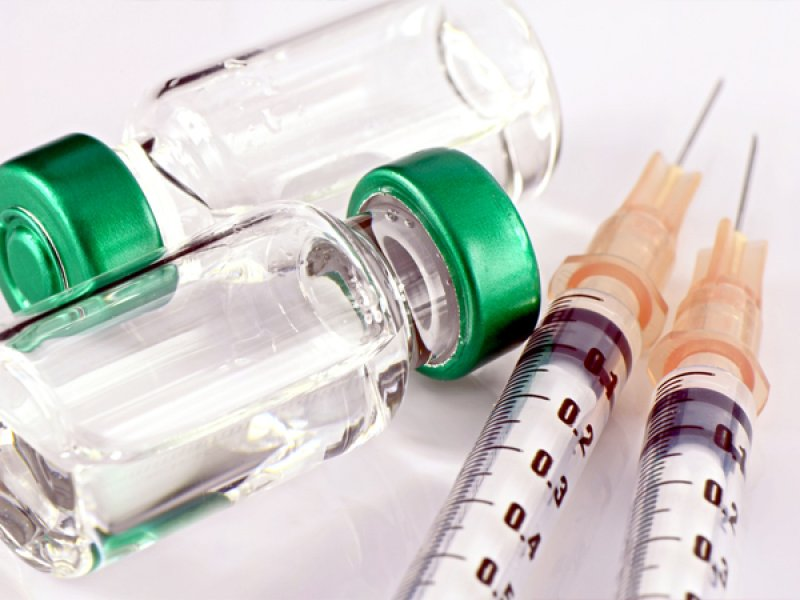
An immediate response to the vaccine develops in the next half hour. Therefore, after its introduction up to 30 minutes. you need to be near the vaccination room.
To reduce the likelihood of allergic manifestations after vaccination, it is recommended not to consume allergenic foods and new exotic fruits.
Of the general reactions, it is possible to increase the temperature by 0.5 0 C, slight malaise, redness in the throat and nasal congestion. The condition resembles the manifestation of ARVI, but the symptoms quickly go away on their own (in 1-2 days), so there is no need to take medicine. Most often, this condition occurs when using a live vaccine.
Inactivated vaccines cannot cause disease: the killed virus cannot multiply! Therefore, if an infection has developed, it means that the vaccination coincided in time with the infection with any of the ARVI viruses.
To reduce the risk of contracting any ARVI, it is recommended in the next 3-5 days. avoid crowded places after immunization. If, nevertheless, the infection "clung", then in these cases it is possible to take antipyretic drugs, antihistamines, they will not affect the formation of the immune response.
One of frequent questions - can the flu shot be wet? You can wash in the shower, but do not rub the injection site with a washcloth or sponge. It is not recommended only to visit the pool, swimming in open water.
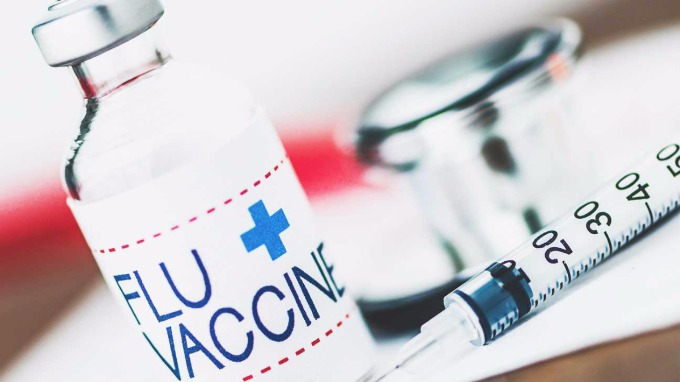
But the question that interests some people: is it possible to drink alcoholic drinks? - the answer is no, it is impossible. Drinking alcohol will put additional stress on the liver, which is also involved in the formation of immunity.
Where can you get an influenza vaccine?
Most often they are vaccinated at the clinic. After examination and in the absence of contraindications, the doctor sends the patient to the vaccination room.
The vaccination can also be done in medical offices:
- in kindergarten;
- at school;
- at the enterprise;
- in a private clinic
If a person is not included in the risk group, then he pays for the vaccine on the spot, in the clinic. If the selected drug is not in the clinic, then it is better to vaccinate in the medical institution where it is available, since vaccines require special compliance temperature regime during transportation. The doctor has the right to refuse to administer the vaccine brought by the patient, if there is no confidence in the observance of these rules, this is fraught with complications.
Is it possible to refuse vaccination
Vaccinations are carried out only with written consent patient or the child's parents. Both the patients themselves and the parents of children have the right to refuse vaccination. Refusal to vaccinate is also made in writing with an indication of his number official document, dates. The refusal is certified by the seal of the medical institution and recorded in the clinic's logs.

The flu shot is a means of preparing the body and immune system to fight against influenza virus. Modern inactivated influenza vaccines do not possess pronounced reactogenicity and are well tolerated. You just need to get vaccinated in a timely manner, and then there will be nothing to fear from the Hong Kong flu.
From September 5, at the initiative of the Rospotrebnadzor Administration and the Moscow Metro, specially equipped cars will be installed at 24 subway stations, where city residents will be able to get a flu shot free of charge. The website of the newspaper reports. "Evening Moscow" with reference to the Moscow Department of Health.
This opportunity will be presented to the townspeople from September 5 to November 1. In order to receive the vaccine, Muscovites need to have a passport and a mandatory health insurance... Points will be open from 8:00 to 20:00 on weekdays, from 09:00 to 18:00 on Saturdays, and from 9:00 to 16:00 on Sundays.
The citizens will be able to vaccinate at the stations Baumanskaya, Tushinskaya, Molodezhnaya, Tulskaya and others.
Doctors will use a modern domestically produced apparatus for vaccination "Grippol plus".
tags: The medicine Flu Arbatsko-Pokrovskaya UndergroundVaccinations last year may not protect against the new strain, so you need to get vaccinated again. Doctors have already developed a vaccine to combat new strains. It is important to recognize the flu symptoms immediately: heat - up to 38-390С and above; chills, headache, muscle and joint pain; weakness, malaise; sore throat, dry, hacking cough; runny nose and sneezing.
This year we are expecting a new strain A (H1N1) of the so-called swine flu and two previous variants of the influenza A (H3N2) virus, Hong Kong, will be a variant in the vaccine; and the previous, last year, variant of the influenza B virus. The head of Rospotrebnadzor Anna Popova said: “We need to be vaccinated. This year, funds from the federal budget have been allocated for the immunization of more than 40% of the total population of the Russian Federation, there will be money from the budgets of constituent entities, municipalities, as well as private money. That is, the number of people who will be vaccinated against influenza this year cannot be less than 45%. We hope there will be even more. "
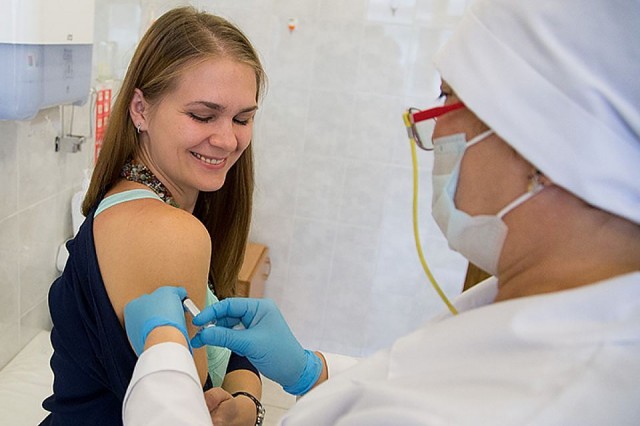
There is no person in the world who is not familiar with ARVI. Every year during the cold season, doctors are looking for a way to protect the population from this insidious and often unpredictable disease. One of the most common types of ARVI is influenza. It is dangerous because it causes a lot of complications that cannot be predicted. The most vulnerable groups of the population are pregnant women, children and the elderly. For them, the disease can be fatal or lead to disability. It would seem that the solution has long been found: vaccination. But if everything is so simple, then why does this disease still exist? And is it worth getting vaccinated at all?
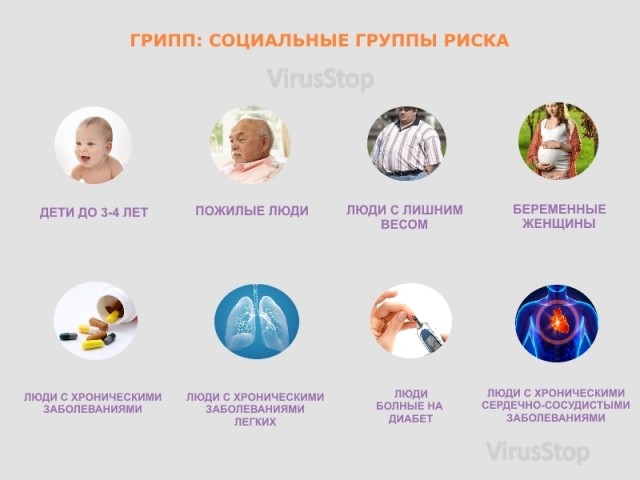
Features of vaccines
For people of different age groups different vaccines are selected. Children and adults may not always be vaccinated with the same drug.
There are several types of vaccines. Subunits are considered one of the safest for flu vaccination in 2016. The risk of complications when using them is minimal, since they contain only viral surface proteins. There are also split and inactivated vaccines (they contain split or whole virus cells). Among the reactions to their use, allergic reactions, fever, headache etc.
In 2016, the flu vaccine was developed taking into account the specifics of the expected virus, the flu vaccine for 2017 will take into account the mutation of this virus.
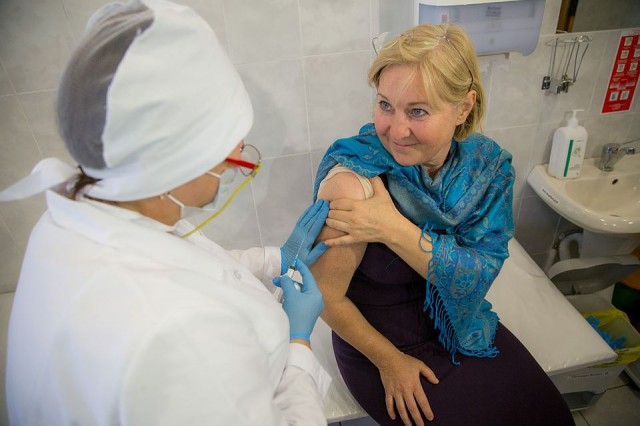
When to get vaccinated
Terms of vaccination - important aspect in achieving persistent and positive result... It is important to have time to get vaccinated in advance, as the body will need time to develop a stable immunity to the disease. Three weeks - minimum term for the production of antibodies. At the same time, a vaccination done too early may be useless, since by the time the epidemic begins, the immune system will already weaken and will not respond properly to the pathogen.
Traditionally, influenza vaccination is carried out in early autumn. Stable immunity lasts for six months. You can find out about the timing of vaccination at the district clinic or paramedic center at your place of residence.
How to get vaccinated correctly
Influenza is one of the most contagious diseases. It spreads quickly and is hard to defend against. It happens that after a flu shot, a person still gets sick with it. In situations like this, prior vaccination can help avoid complications and speed up treatment. But for the vaccine to be beneficial, not harmful, several rules must be followed.
Vaccination can only be done healthy person... After any transferred infectious disease should take at least two weeks from the moment of complete recovery.
If you have feeling unwell, but no clear signs illness, consult in advance with your doctor. He will inspect and appoint required analyzes... In addition to obvious diseases in the body, hidden inflammatory processes... Only blood and urine tests will help to detect them.
If your body is prone to allergic reactions, start taking the antihistamines you normally take three days before vaccination. If after the vaccination the allergy does not appear, then the remedies against it can no longer be taken.
The vaccination campaign has started in St. Petersburg. The townspeople are offered to protect themselves from the flu, despite the fact that it is summer outside, the time for vaccination is the most suitable. You can get vaccinated, as always, in district clinics and not only.
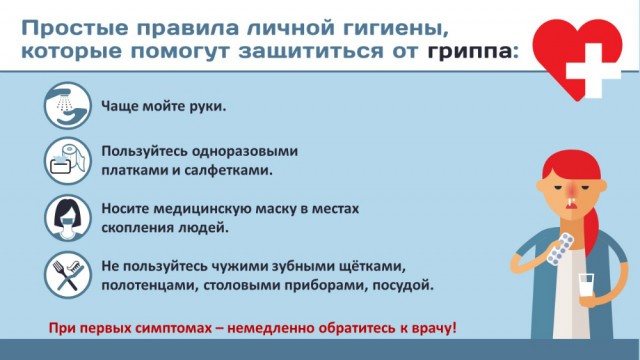
It was decided to continue last year's experiment with medical buses near the metro. The first such mobile stations will appear on the Petrogradskaya side near Chkalovskaya - there you can get vaccinated on weekdays from 10 am to 2 pm. And at "Gorkovskaya" - in the evenings - from 15:00 to 19:00. In the near future, the same mobile vaccination stations will appear in other regions. Last year, a kind of record was broken. 41% of townspeople - more than two million people - were vaccinated against the flu. This, according to officials, helped St. Petersburg survive the winter without flu and SARS epidemics.
Did you spot a typo or mistake? Select the text and press Ctrl + Enter to tell us about it.
